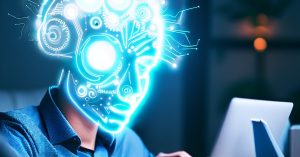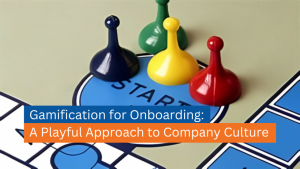Introduction:
Meet Dr. Sophia Evans, an award-winning educator with 20 years of experience igniting young minds. As a passionate advocate for 2024 Educational Horizon innovation, she explores the exciting landscape of learning in 2024. Get ready to dive into three major trends poised to transform the way we teach and learn: personalized learning, AI-powered tools, and the power of gamification.
2024 Educational Horizon: Tailoring Education to Individual Needs

Imagine a classroom where learning isn’t one-size-fits-all but adapts to each student’s unique pace, strengths, and interests. Personalized learning makes this vision a reality by utilizing:
- Adaptive learning platforms: Algorithms adjust difficulty and content based on individual performance, ensuring continuous challenge and growth.
- Learning pathways: Students choose learning paths aligned with their interests and goals, fostering deeper engagement and motivation.
- Microcredentials: Instead of traditional grades, students earn badges and certifications demonstrating specific skills mastered.
2024 Educational Horizon Benefits:

- Increased engagement: Students have more control over their learning, leading to deeper motivation and ownership.
- Improved academic outcomes: Personalized instruction caters to individual needs, leading to better understanding and faster progress.
- Lifelong learning skills: Students develop critical thinking, self-directed learning, and adaptability needed for the future workforce.
2024 Educational Horizon Challenges:
- Equity and access: Ensuring all students have the technology and resources needed for personalized learning requires addressing digital divides.
- Teacher training: Equipping educators with the skills and tools to effectively implement personalized learning approaches is crucial.
- Assessment: Developing assessments that accurately measure individual growth and mastery within personalized learning frameworks requires innovation.
AI-Powered Tools:

Artificial intelligence (AI) is not replacing teachers, but rather becoming a powerful partner in education. Here’s how:
- Automated grading and feedback: AI can handle repetitive tasks like grading essays, allowing teachers to focus on personalized feedback and support.
- Adaptive tutoring systems: AI tutors tailor instruction to individual student needs, providing targeted learning support in real-time.
- Data-driven insights: AI analyzes student data to identify learning gaps and patterns, guiding teachers in making informed decisions.
2024 Educational Horizon Benefits:
- Increased teacher efficiency: AI frees up valuable time for teachers to engage in personalized instruction and student interaction.
- Improved learning outcomes: AI-powered tools can provide targeted support and intervention, leading to better academic performance.
- Personalized learning opportunities: AI algorithms can personalize learning content and recommendations based on individual student needs.
Challenges:
- Ethical considerations: The use of AI in education raises questions about bias, data privacy, and the potential for automation to replace teachers.
- Teacher buy-in and training: Building trust and equipping educators with the skills to use AI effectively is essential.
- Accessibility and equity: Ensuring all students have access to AI-powered tools is crucial to avoid exacerbating existing educational inequalities.
Gamification: Learning Through Playful Engagement

The power of games to motivate and engage is being harnessed in education through gamification. Here’s how:
- Points, badges, and leaderboards: These game mechanics incentivize participation, completion of tasks, and positive learning behaviors.
- Quests and challenges: Engaging storylines and missions motivate students to progress through learning material and acquire new skills.
- Virtual worlds and simulations: Immersive environments provide fun and interactive ways to practice new concepts and apply knowledge.
Benefits:
- Increased student engagement: Gamification makes learning fun and interactive, leading to higher levels of motivation and participation.
- Improved critical thinking and problem-solving: Games often require strategic thinking and creative solutions, building important cognitive skills.
- Development of collaboration and teamwork: Multiplayer games encourage communication and cooperation, fostering essential social skills.
Challenges:
- Balancing fun and learning: Ensure gamified activities align with learning objectives and avoid becoming solely entertainment-driven.
- Assessment and evaluation: Measuring student learning outcomes within gamified environments requires innovative approaches.
- Equity and inclusion: Make sure all students have the opportunity to participate and succeed in gamified learning activities.
Conclusion:
2024 educational horizon is brimming with exciting possibilities. Personalized learning, AI-powered tools, and gamification offer opportunities to empower educators, engage students, and personalize learning experiences. While challenges exist, embracing these trends with a critical and informed










